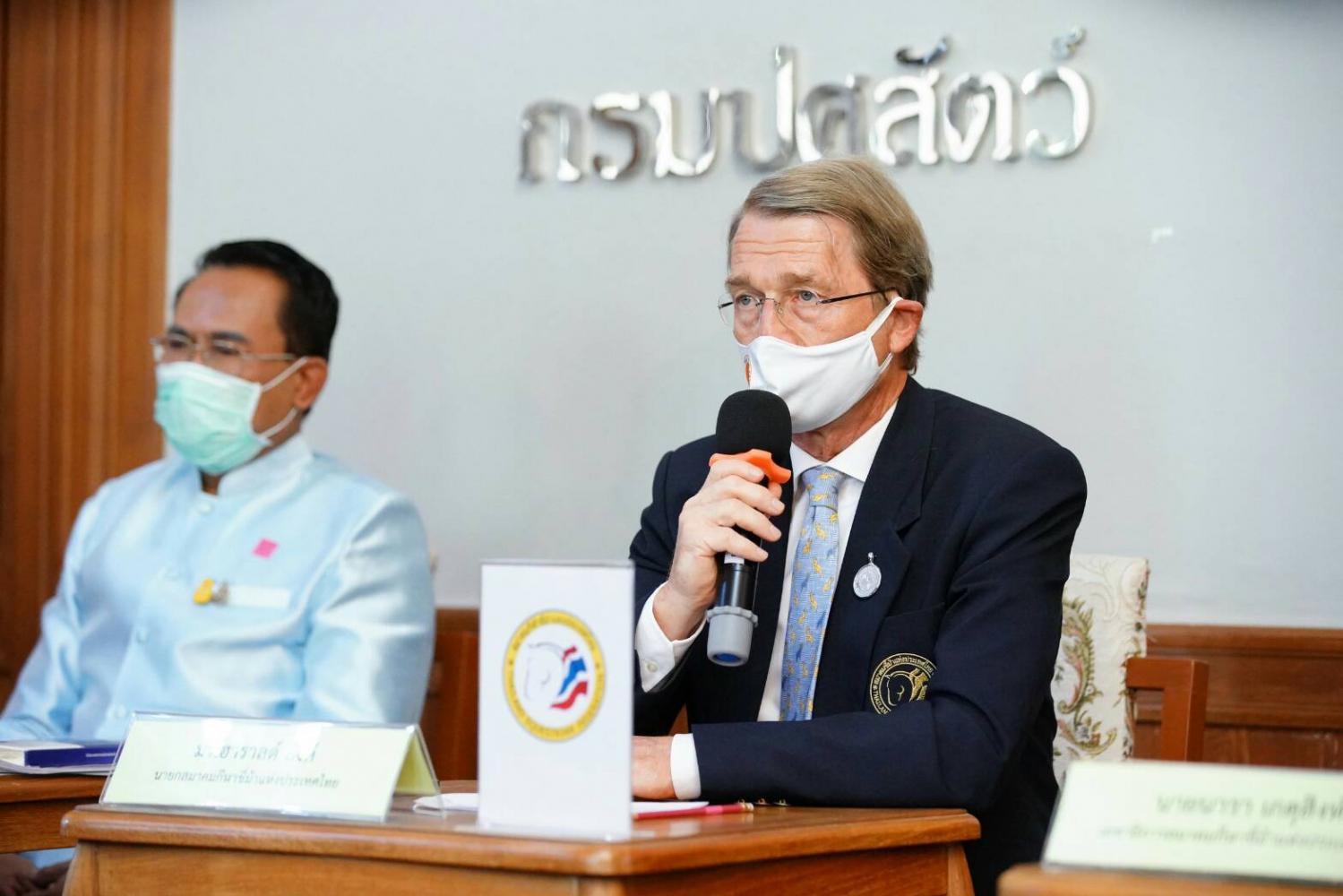
The Department of Livestock Development and the Thailand Equestrian Federation have acquired African Horse Sickness (AHS) vaccines in an attempt to stop the fatal equine disease from spreading further.
At a press conference about the outbreak on Tuesday, department director-general Sorravis Thaneto said that in addition to procuring vaccines, strict control measures -- including a ban on transporting all equine species from areas where AHS has been reported -- have been put in place to minimise the risk of contagion.
AHS was first detected in Thailand on March 25, following reports of sudden deaths among horses in Nakhon Ratchasima. Since then, the disease -- which is spread by mosquitoes, gnats and gadflies -- has spread to other parts of the country.
Shortly after authorities became aware of the sudden deaths of the horses in Nakhon Ratchasima, the department immediately sent disease control teams to the area. Test results confirmed the deaths were caused by the AHS virus, which had never been seen in Thailand before.
Mr Sorravis said an investigation revealed that the infected horses were imported from Africa.
To help control the outbreak, the Ministry of Agriculture and Cooperatives recently started regulating all wildlife imported from Africa under the Animal Epidemics Act as opposed to the National Parks Act -- which makes transporting them across borders more difficult, he said.
However, Mr Sorravis admitted that the department does not know how many horses in Thailand right now were imported from Africa. As such, he urged owners and breeders to install insect screens to prevent contagion.
Harald Link, President of the Thailand Equestrian Federation and Chairman of B.Grimm, said that the federation can provide useful facts about AHS to ease the fears of owners and breeders and prevent misunderstanding.
He said the federation and the department have been working closely to prevent the spread of AHS. "To stop the epidemic, support from all sides is needed and the department's recommendations must be strictly followed," he said.